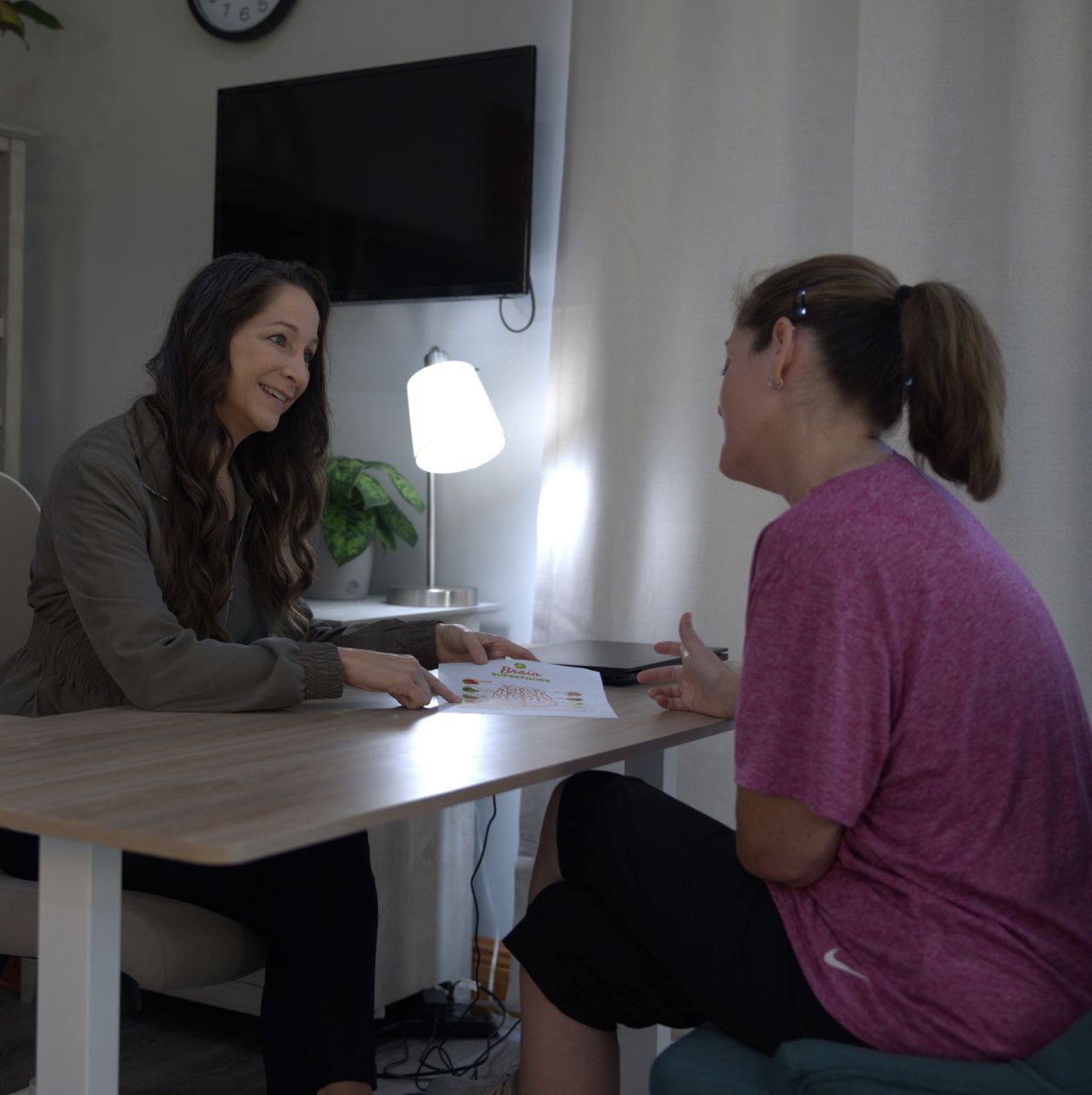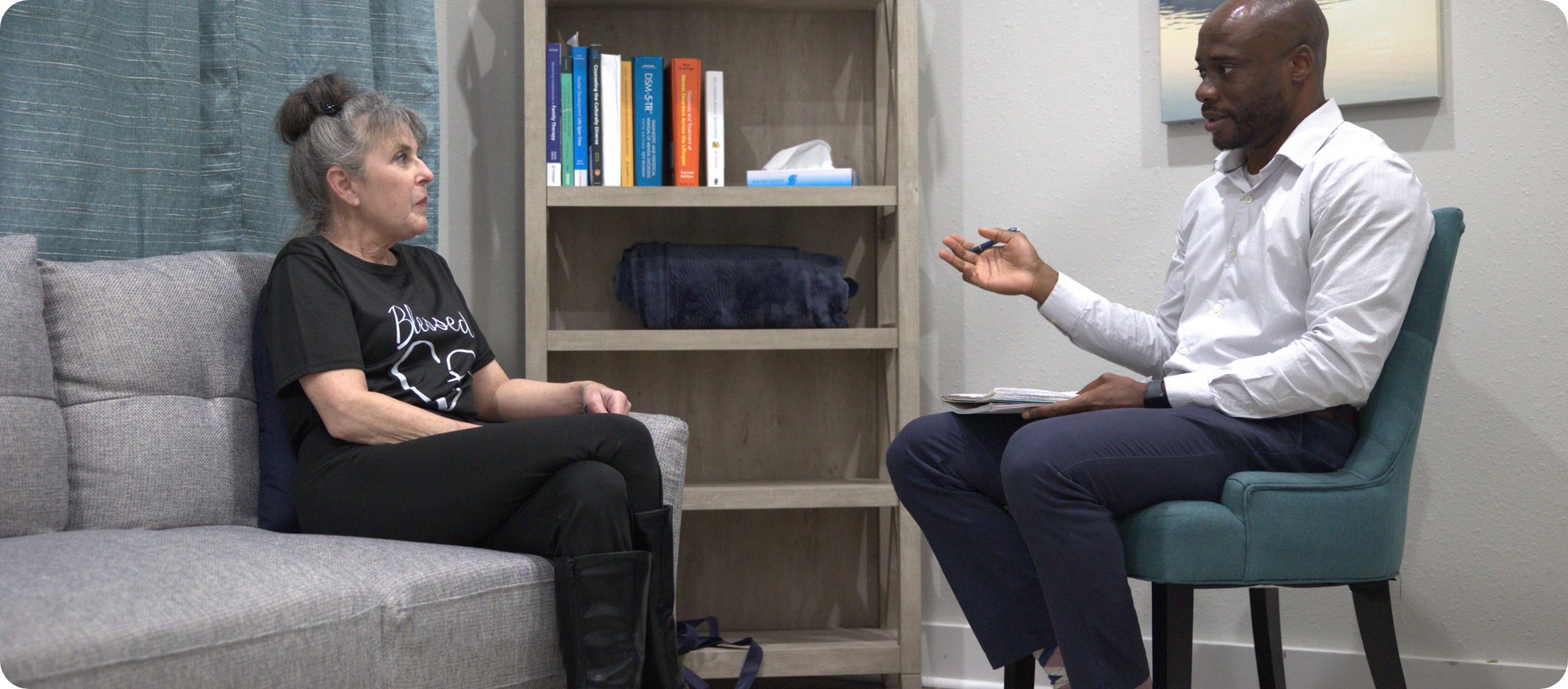You Didn’t Mean to Depend on Caffeine. Now You Can’t Function Without It.
You Didn’t Mean to Depend on Caffeine. Now You Can’t Function Without It.
For many people, caffeine is just part of the day—coffee, energy drinks, sodas, tea. But when you can’t wake up, focus, or feel “normal” without it, something deeper may be going on. Caffeine addiction is real, and it’s more common than you might think.
At Honey Lake Clinic, we understand how easily a dependency can form—and how discouraging it can feel when your attempts to cut back lead to withdrawal symptoms like headaches, anxiety, or fatigue. Our evidence-based, faith-driven treatment programs are designed to help you reclaim your energy, restore balance, and find lasting freedom.
In fact, 98% of patients who complete our program report meaningful progress. That’s hope you can trust.
Call us today—because real recovery starts with a conversation.

What Is Caffeine Addiction?
Maybe you tell yourself, “I just like the taste,” or “It’s not like I can’t stop if I really wanted to.” But when that daily cup becomes two… then four… then something you need just to feel normal—you may be dealing with more than a harmless habit.
Caffeine addiction happens slowly, almost silently. It starts with a little boost to get through the day. But over time, your body and brain begin to rely on it. You need more to get the same effect, and going without it triggers headaches, exhaustion, irritability—or a deep fog you can’t shake.
Because caffeine is so common—and even praised in work culture—it’s easy to miss the signs. But that doesn’t make the struggle any less real.
Is Caffeine Really Addictive?
Yes. Caffeine stimulates your central nervous system and activates dopamine, the brain’s reward chemical. That means every cup of coffee or energy drink isn’t just giving you energy—it’s reinforcing a neurological cycle.
You feel focused… then jittery… then tired again. So you reach for more. And more. Until your day starts and ends with caffeine—not because you enjoy it, but because you feel like you need it.
This isn’t about willpower or weakness. It’s how caffeine is designed to work. The real question isn’t whether it’s addictive. It’s whether it’s quietly taking over more of your life than you ever intended.
If you’re starting to wonder—call us. There’s no pressure, just someone to talk to


Signs and Symptoms of
Caffeine Addiction
Signs and Symptoms of Caffeine Addiction
The line between “normal use” and addiction can be subtle. Common signs of caffeine addiction include:
- Needing caffeine to feel awake or functional
- Headaches, irritability, or fatigue without caffeine
- Anxiety, restlessness, or insomnia
- Using more caffeine over time to get the same effect
- Failed attempts to cut back
- Prioritizing caffeine over hydration, nutrition, or sleep
If you see yourself in any of these, you’re not alone—and you don’t have to manage it on your own.
Call us today

Breaking Free from Caffeine Addiction:
A Better Way Forward
Breaking Free from Caffeine Addiction: A Better Way Forward
Quitting caffeine isn’t as easy as just saying no. For many, cutting back leads to headaches, irritability, brain fog, or even anxiety—symptoms that make you want to give up before you’ve begun. That’s why real recovery takes more than willpower. It takes a plan.
At Honey Lake Clinic, we offer a whole-person approach to caffeine addiction that supports your physical body, renews your mind, and cares for your soul. Our treatment is both evidence-based and faith-driven, grounded in clinical excellence and guided by Biblical truth.

Your care plan may include:
- Cognitive Behavioral Therapy (CBT) to help break habitual cycles and address underlying anxiety
- Medical monitoring to manage withdrawal symptoms safely
- Nutrition and hydration support to restore your body’s natural rhythm
- Individual and group therapy focused on emotional healing and spiritual growth
- Faith-based counseling and pastoral care to strengthen your sense of identity and peace
- Lifestyle coaching to develop sustainable rhythms for rest, energy, and stress relief
We don’t just help you quit caffeine. We help you understand why you’ve depended on it—and how to build a life where you don’t need it anymore.
We don’t just help you quit caffeine. We help you understand why you’ve depended on it—and how to build a life where you don’t need it anymore.
Why Choose Honey Lake Clinic?
Why Choose Honey Lake Clinic?
98% of patients report
meaningful progress
98% of patients report meaningful progress
Every plan is built by Christian,
board-certified providers
Every plan is built by Christian, board-certified providers
We treat the mind, body, and
spirit with grace and expertise
We treat the mind, body, and spirit with grace and expertise
Our expansive campus offers a tranquil, wellness-centered environment
Our expansive campus offers a tranquil, wellness-centered environment
Accredited by JCAHO and
AHCA, and trusted nationwide
Accredited by JCAHO and AHCA, and trusted nationwide
Whether you’re exhausted from relying on caffeine or afraid
to try life without it—we’re here to help you heal.
Whether you’re exhausted from relying on caffeine or afraid to try life without it—we’re here to help you heal.
Call Now. You Don’t Have to Stay Stuck.
Call Now. You Don’t Have to Stay Stuck.
If you’ve wondered whether this is a problem—it probably is. But here’s
the good news: with the right help, you can find real rest again.
Call now to speak with someone who understands.
One step, one call, one new beginning.
If you’ve wondered whether this is a problem—it probably is. But here’s the good news: with the right help, you can find real rest again.
Call now to speak with someone who understands. One step, one call, one new beginning.
Scientifically Validated Healing in a Faith-Based Environment
At Honey Lake Clinic, we believe true healing happens when the mind, body, and spirit are nurtured together. Our integrated approach is both scientifically validated and deeply rooted in Christian faith.
Honey Lake Clinic’s Proven Results:
98%
Feel better now than when admitted
98%
Of patients would recommend Honey Lake Clinic
95%
Reported reduced anxiety
93%
Experienced decreased depression
